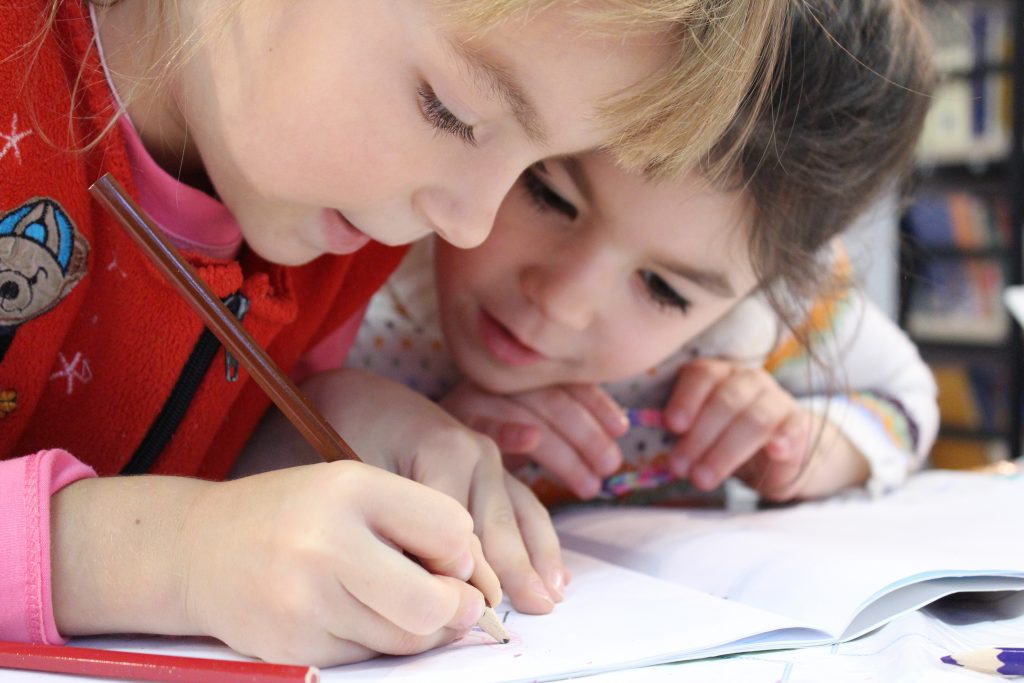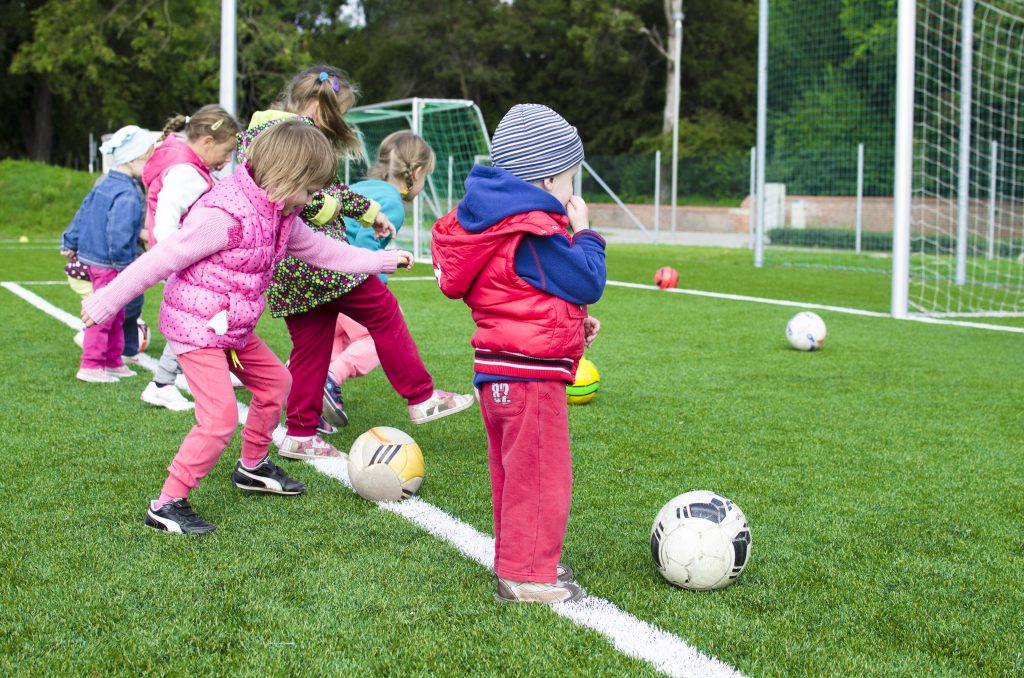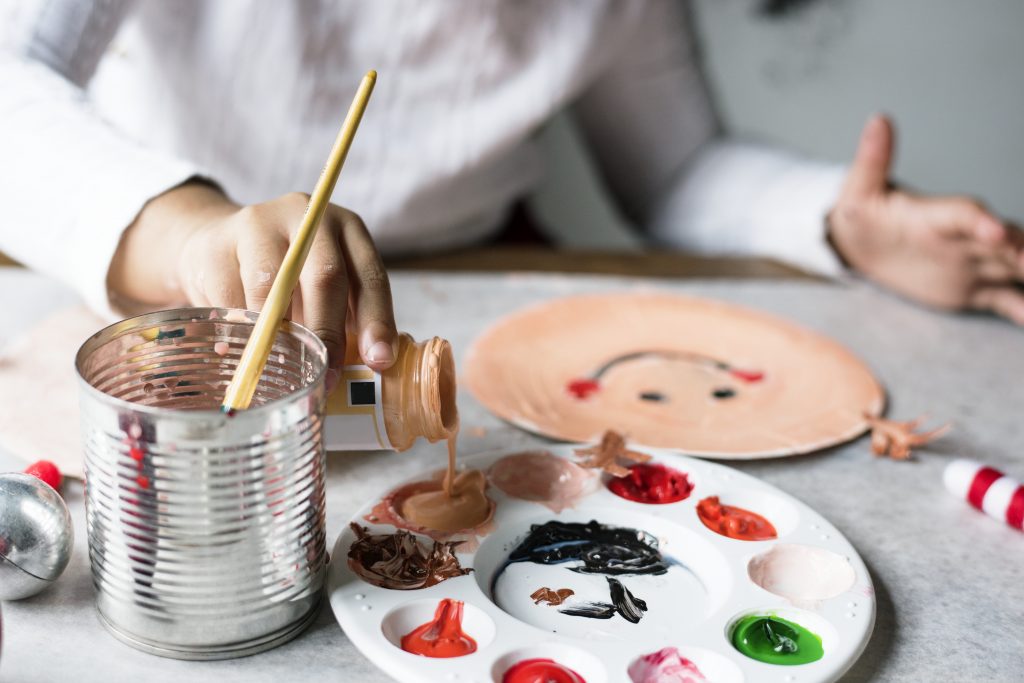
Sending our children to nurseries is a great challenge for many parents including me. The attachment that we have towards our children and the mindset that it is only us who can provide the best for our little ones often makes it hard to realise this transition. I myself had to go through lots of deliberation and psychological acceptance of the idea. I also spent considerable time explaining my daughter how fun it would be to attend a nursery, how many new friends she will make and how many different games and activities she will be engaged in during the day. When my husband and I started visiting nurseries in order to choose one for Mia, we brought her with us. She is a very social kid and the minute she entered a nursery she started playing with the children in the yard or indoors with all those new toys they have got. That way I understood that probably it would be more difficult for me to get used to the idea that she is going to a nursery rather than her with the idea that she is going to spend some time without me. As of today, I am extremely happy that I made the decision to send her to nursery. I have got some time to do my affairs uninterrupted and she has got the floor to socialise actively, to learn new skills, to have endless fun and to grow up as an independent person.
Today I am discussing the issue of how to make this transition smoothly so that both children and parents feel comfortable and confident implementing this life change. I am introducing you Kristee Boyd, who will share her thoughts based on her own experience of a mother of two kids and as a professional who spent a lot of her career in the educational field.
WM: The transition from the home environment to the nursery is a huge challenge both for parents and children. In your professional experience what is the approach that grants all parties comfort and stability in this process?
KB: Lot of conversation about the upcoming transition, as well as reading appropriate books in the lead-up (there are loads of great books available now to read with children to prepare them for nursery!). It helps when children have an older sibling, as my daughter did, who can help to get them really positive about how much fun nursery will be. For parents who might get distressed about the transition, I think the most important thing is to make sure that they have activities planned for themselves during the first few nursery sessions (if they are not working!), so that they are not sitting in the house fretting! Things like taking an exercise class or meeting friends can help them to overcome the natural worries that many of us feel!

WM: What are the psychological implications for the little ones from this transition?
KB: I think psychologically, there can be positive and negative implications, depending on their experiences. My daughter thrived from her first day at nursery. She was really ready for increased learning, socialising and structure in her day. However, for some children, the initial separation from parents causes a significant amount of distress. For example, a friend of mine has a daughter who is on the autistic spectrum. She really struggled with separation from her parents, changes in the structure of her day and with the social aspects of nursery. This little girl needed additional specialist help to deal with the psychological implications of her transition to nursery. With the right support systems in place, she quickly began to enjoy the nursery experience.
WM: What pieces of advice could you give to parents in order to prepare the child for the transition?
KB: Talk about it a lot at home, validate apprehension that children may express and talk through strategies for dealing with it, read relevant books and maybe even have some fun practice at home, by setting up a structured day with snack time, play time and such to allow the child to have a little window into what his/her day will look like at nursery.
WM: What hints could you share with parents, who are on the verge of sending their children to nursery, in order to help them prepare for this challenge?
KB: In the case of my own daughter, it was a really important part of the process to let her choose her nursery clothes, new lunch box, backpack, etc. It helped her to feel like a ‘big girl’ and to take ownership of the transition to nursery. She wasn’t allowed to bring toys in to her nursery classroom but she did always choose a teddy to stay in her back pack for the day – it helped to calm her to bring a ‘friend’ every day. She was fully toilet trained by then but she did have a couple of ‘accidents’ in her first weeks, due to waiting too long to go to the bathroom (having too much fun!), so I always packed spare clothes for her.

WM: What should parents do in case their child consistently feels bad and cries when at the nursery?
KB: This is incredibly difficult for parents to deal with but there are various practices that can help, depending on the personality of the child involved. Some parents use star charts at home, with little rewards at the end of each week to encourage the child to not cry when dropped off. A few times when my daughter was having a ‘rough patch’ of not wanting to go to nursery, I took her to a café for a baby chino at the end of the day – a little celebration for ‘big girls’ who finish a day at nursery. However, in some cases (like my friend with an autistic daughter), additional help/advice is needed, especially if weeks/months go by and the child continues to be upset at drop off time. Speaking to the teacher is a great first step, as the teacher has likely dealt with it many times and can offer insight/tips to make the transition more successful.
WM: Why is it so important for children to attend nursery apart from the obvious reason – parents to be able to work and have child free time?
KB: It is an important step in a child’s development. It gives them the opportunity to develop new skills and abilities, to make new friends, to get used to small blocks of time away from their parents. It also prepares them for school.

WM: What are the 5 most important things that children learn in nurseries?
KB: Cognitive Development: Communication skills develop in a safe and positive environment, where a child is encouraged to speak for him/herself and to interact with peers in group work and on a one-to-one basis. Fine and gross motor development takes place within a range of organised activities. Phonological awareness is developed, as well as pre-writing skills.
Social Development: Their confidence advances, in a new setting away from parents, forming new relationships with teachers and other children. Their social skills develop as they interact and learn with others. Play: They have many new learning and playtime experiences that they might not receive in a home environment, including messy play, lots of outdoor play and other activities to develop their coordination, language, etc.
Toilet training: Toilet training takes place for children who have not yet reached this phase.
Preparation for formal schooling: Increased structure to their day and learning new things on a daily basis. There are new expectations in terms of behaviour. Learning is done in an active, fun-filled way which encourages a positive attitude to learning in general.

WM: Is there a “recommended” age at which children shall start going to nursery?
KB: Most parents send their children to nursery when they’re 3-4 years old but it really depends on the personality of the specific child. Some children show signs of being ready for this step earlier than others.

My name is Kristee Boyd and I am currently the Children and Families Worker for St Peter’s Episcopal Church in Edinburgh and my working background has mostly involved working with children in international schools around the world. I have a Master’s Degree in Human Rights and a passion for social justice. I love practising and teaching yoga in my spare time.





